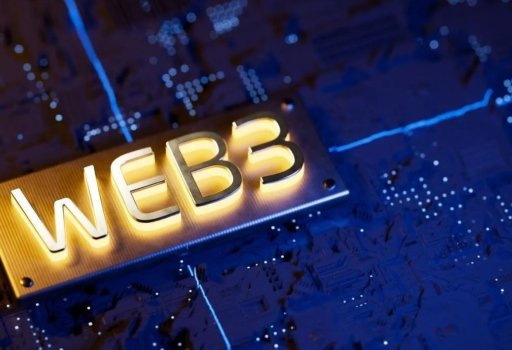Web3 will bring down Big Tech.
Web3 is too good to be true.
Web3 is just a new name for the same old thing.
Web3 is simultaneously any, all, or none of these things. At its core, Web3 is the next iteration of the world wide web—an aspirational view of what the internet could be if it weren’t so entwined with monopolistic companies like Google, Amazon, and Meta that dominate our online lives. For proponents of Web3, it is a natural evolution from Web1—which introduced simple websites with static images—to Web2, which is the responsive and interactive internet we know today that has brought us social media, online shopping, and cloud-based apps. Web3 aims to be a decentralized internet based on blockchain, which proponents believe provides data privacy and control, tamper-proof records of transactions, greater transparency, and equal ownership and opportunities for monetization among users.
But taking down Big Tech and ushering in a more equal internet will be a proverbial David and Goliath match-up—one that skeptics aren’t convinced can happen. Harvard Business Review reports that roughly 84% of all businesses identify Microsoft as a top-three vendor. WhatsApp, owned by Meta, serves more than 2 billion active monthly users. Amazon Web Services runs more than one-third of the internet, and while no single person, governing agency, or corporation owns the internet, they may be the closest to it. Google is so ubiquitous that it is a verb, not just an entity or a service. You get the point—and the problem. The power and the profit of the internet are controlled by a handful of companies, and whether or not you believe in Web3 as a product, its goal is to put more control in the hands of users and even the online playing field.
Web3, as a concept, has existed since 2014, and several integral components to this next version of the internet, like cryptocurrency, blockchain, and non-fungible tokens (NFTs) are growing more popular. But as a complete product, Web3 remains largely theoretical. So what would this look like, in theory? A democratized decentralized digital utopia? Or the Wild West? Maybe both.
Continue reading: https://www.rheaheraldnews.com/news/collection_6d532594-70aa-52d7-b5ee-fe74f8384c6c.html#2
Web3 is too good to be true.
Web3 is just a new name for the same old thing.
Web3 is simultaneously any, all, or none of these things. At its core, Web3 is the next iteration of the world wide web—an aspirational view of what the internet could be if it weren’t so entwined with monopolistic companies like Google, Amazon, and Meta that dominate our online lives. For proponents of Web3, it is a natural evolution from Web1—which introduced simple websites with static images—to Web2, which is the responsive and interactive internet we know today that has brought us social media, online shopping, and cloud-based apps. Web3 aims to be a decentralized internet based on blockchain, which proponents believe provides data privacy and control, tamper-proof records of transactions, greater transparency, and equal ownership and opportunities for monetization among users.
But taking down Big Tech and ushering in a more equal internet will be a proverbial David and Goliath match-up—one that skeptics aren’t convinced can happen. Harvard Business Review reports that roughly 84% of all businesses identify Microsoft as a top-three vendor. WhatsApp, owned by Meta, serves more than 2 billion active monthly users. Amazon Web Services runs more than one-third of the internet, and while no single person, governing agency, or corporation owns the internet, they may be the closest to it. Google is so ubiquitous that it is a verb, not just an entity or a service. You get the point—and the problem. The power and the profit of the internet are controlled by a handful of companies, and whether or not you believe in Web3 as a product, its goal is to put more control in the hands of users and even the online playing field.
Web3, as a concept, has existed since 2014, and several integral components to this next version of the internet, like cryptocurrency, blockchain, and non-fungible tokens (NFTs) are growing more popular. But as a complete product, Web3 remains largely theoretical. So what would this look like, in theory? A democratized decentralized digital utopia? Or the Wild West? Maybe both.
Continue reading: https://www.rheaheraldnews.com/news/collection_6d532594-70aa-52d7-b5ee-fe74f8384c6c.html#2

